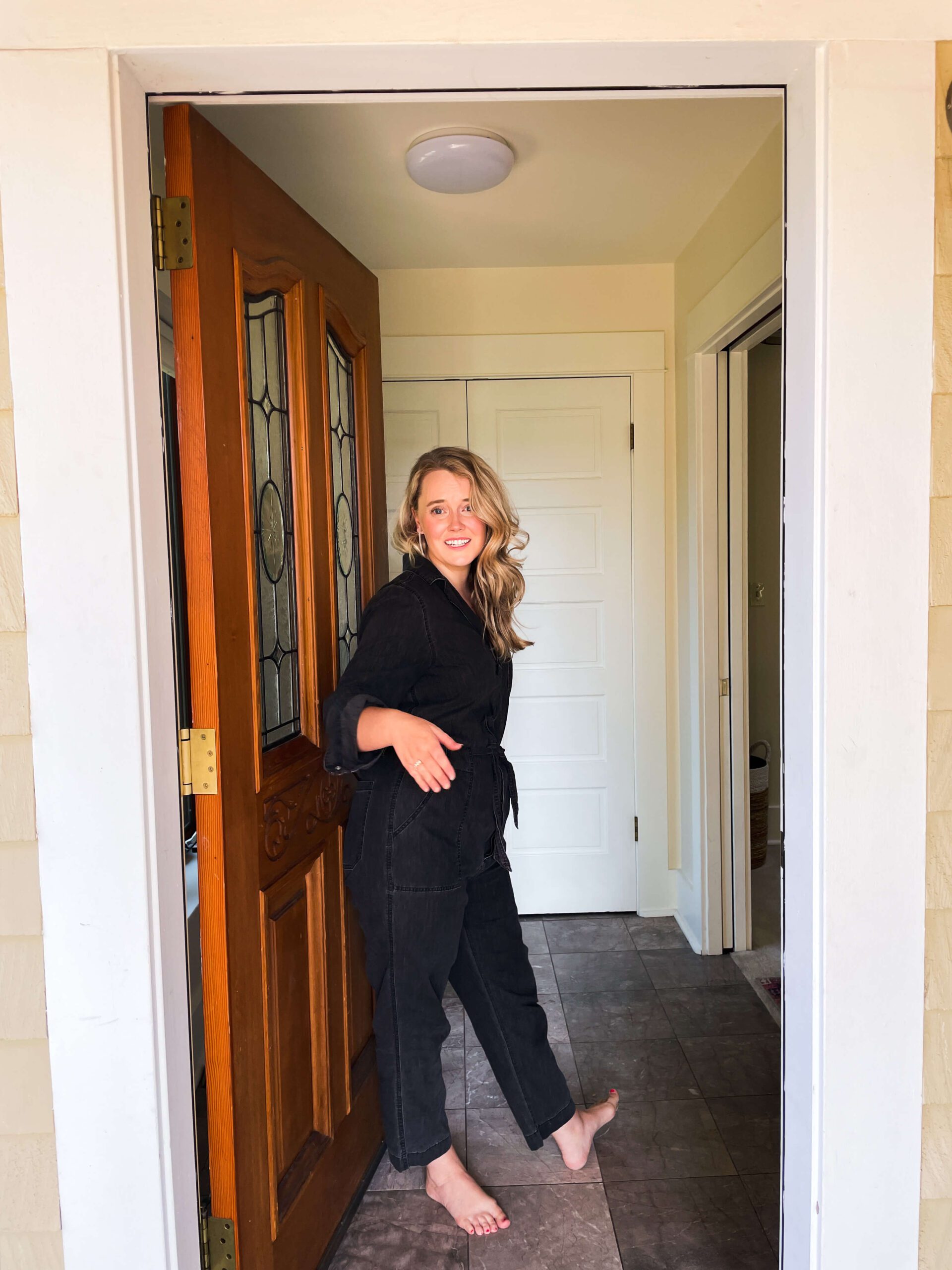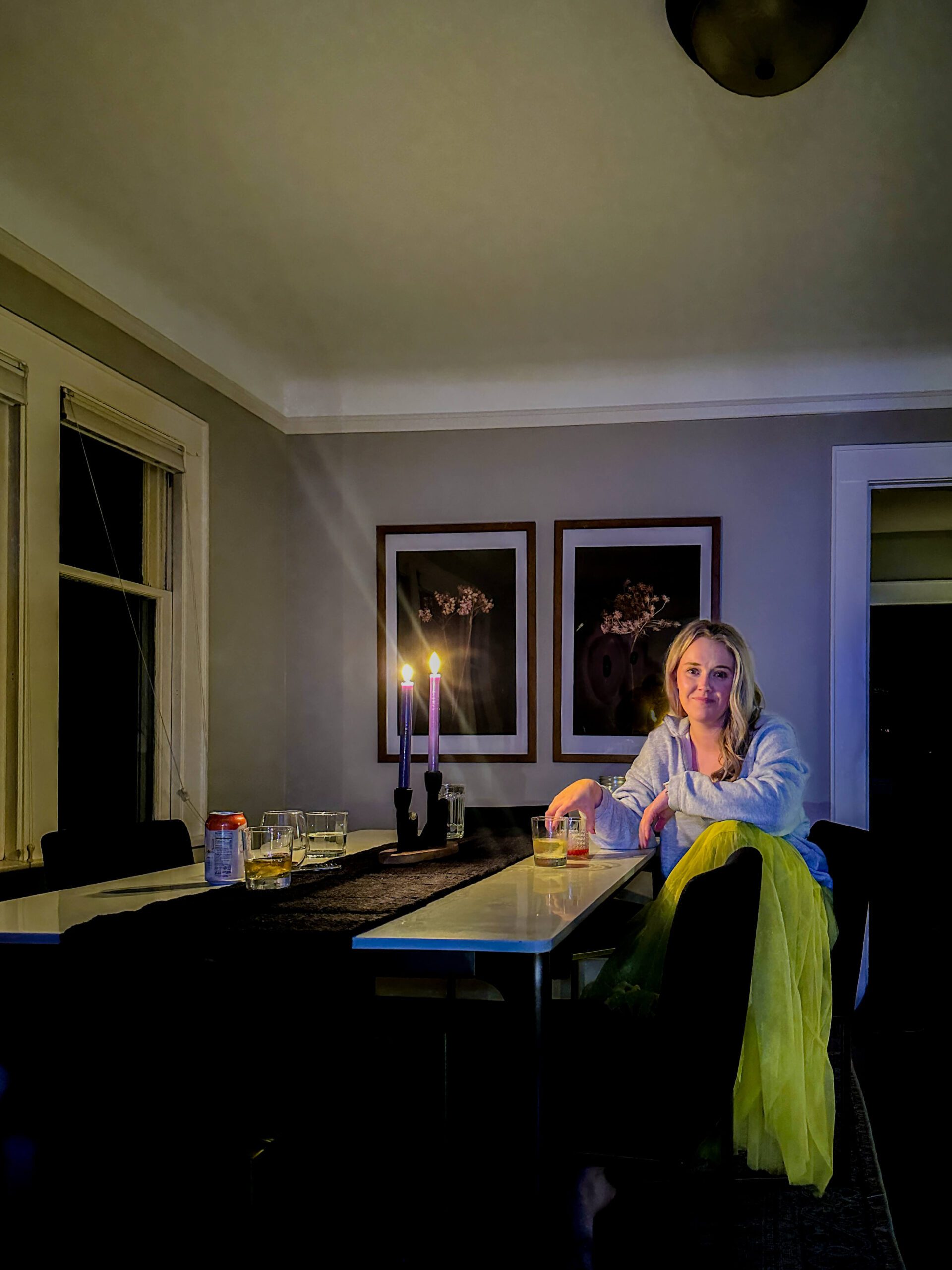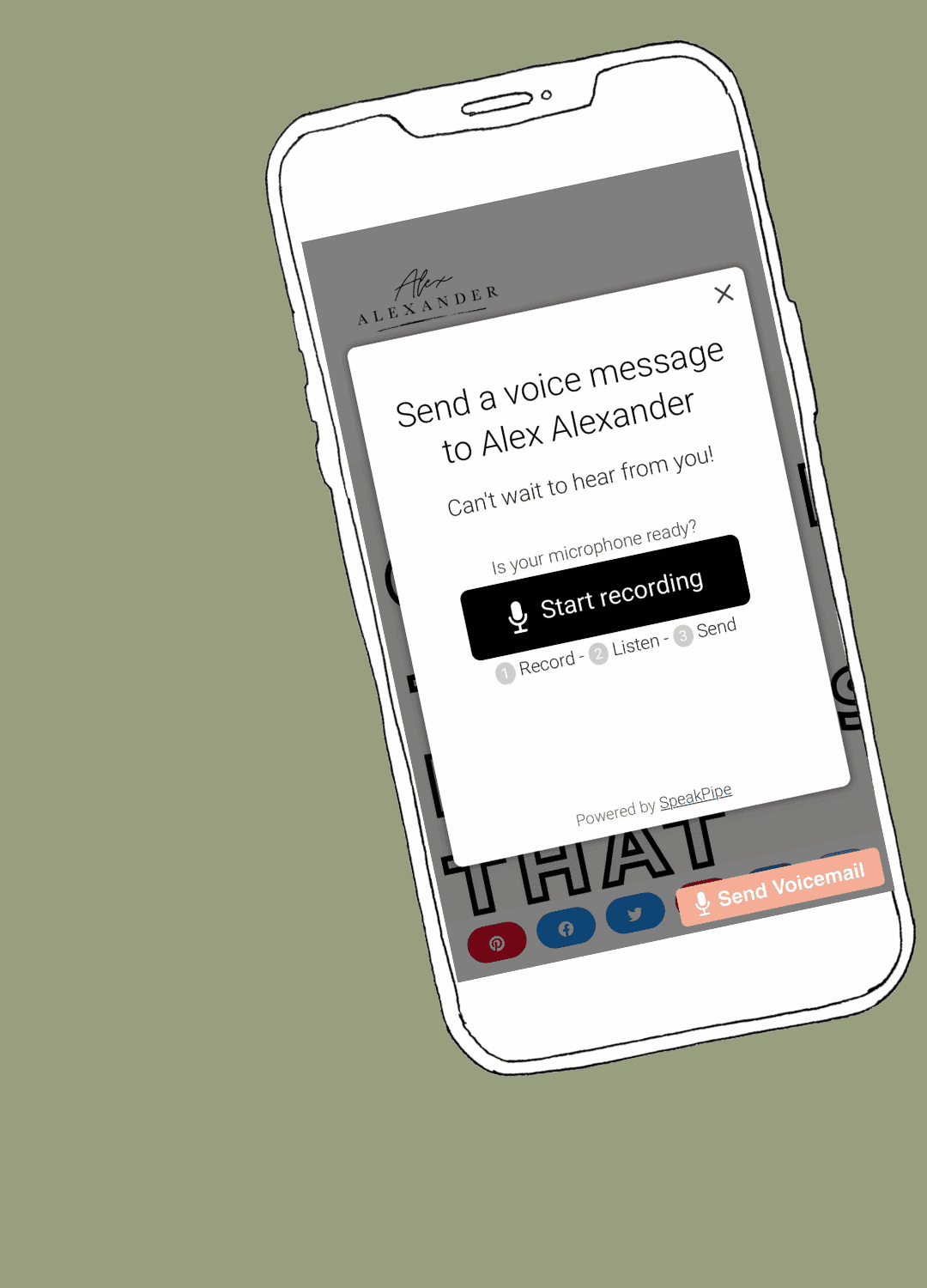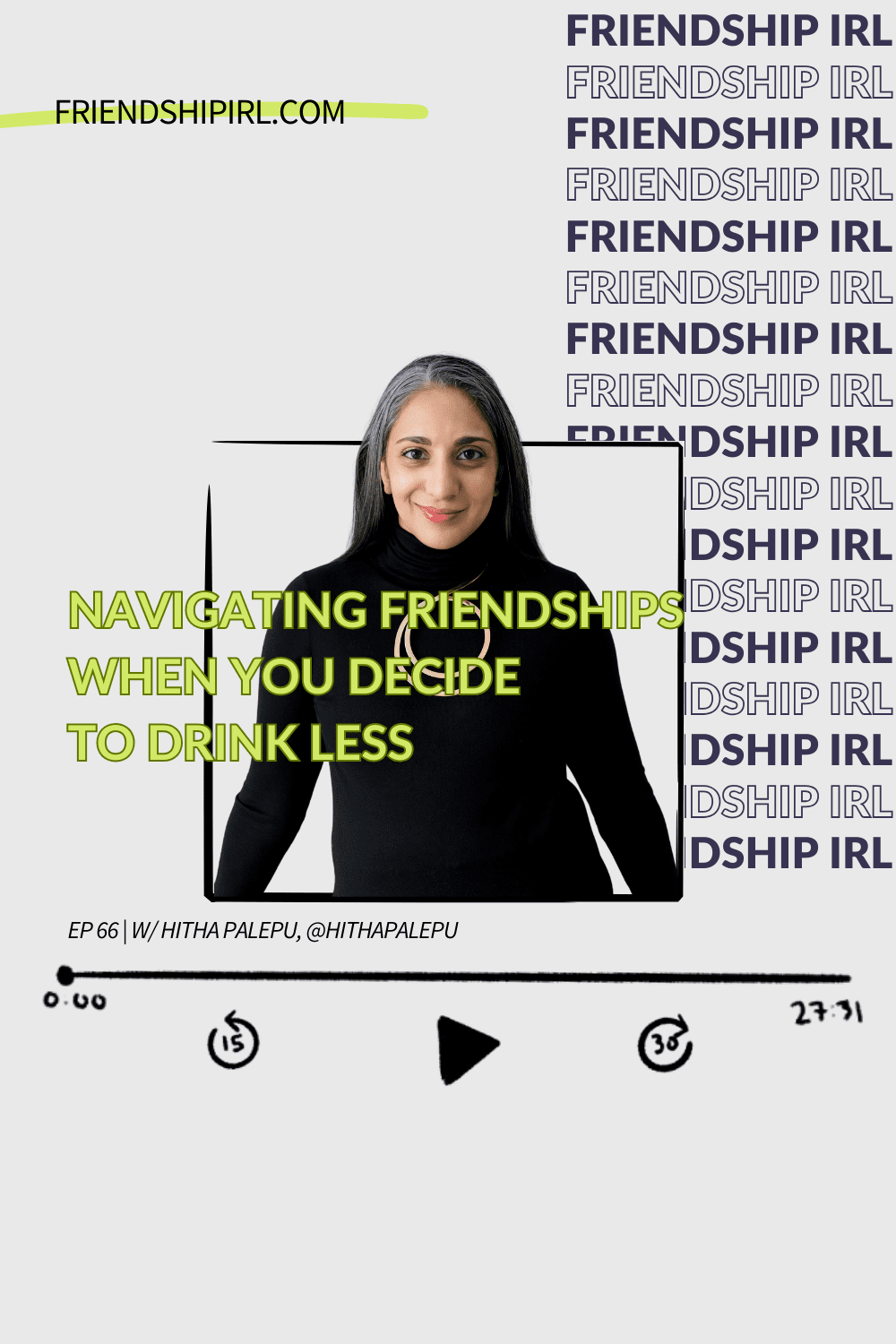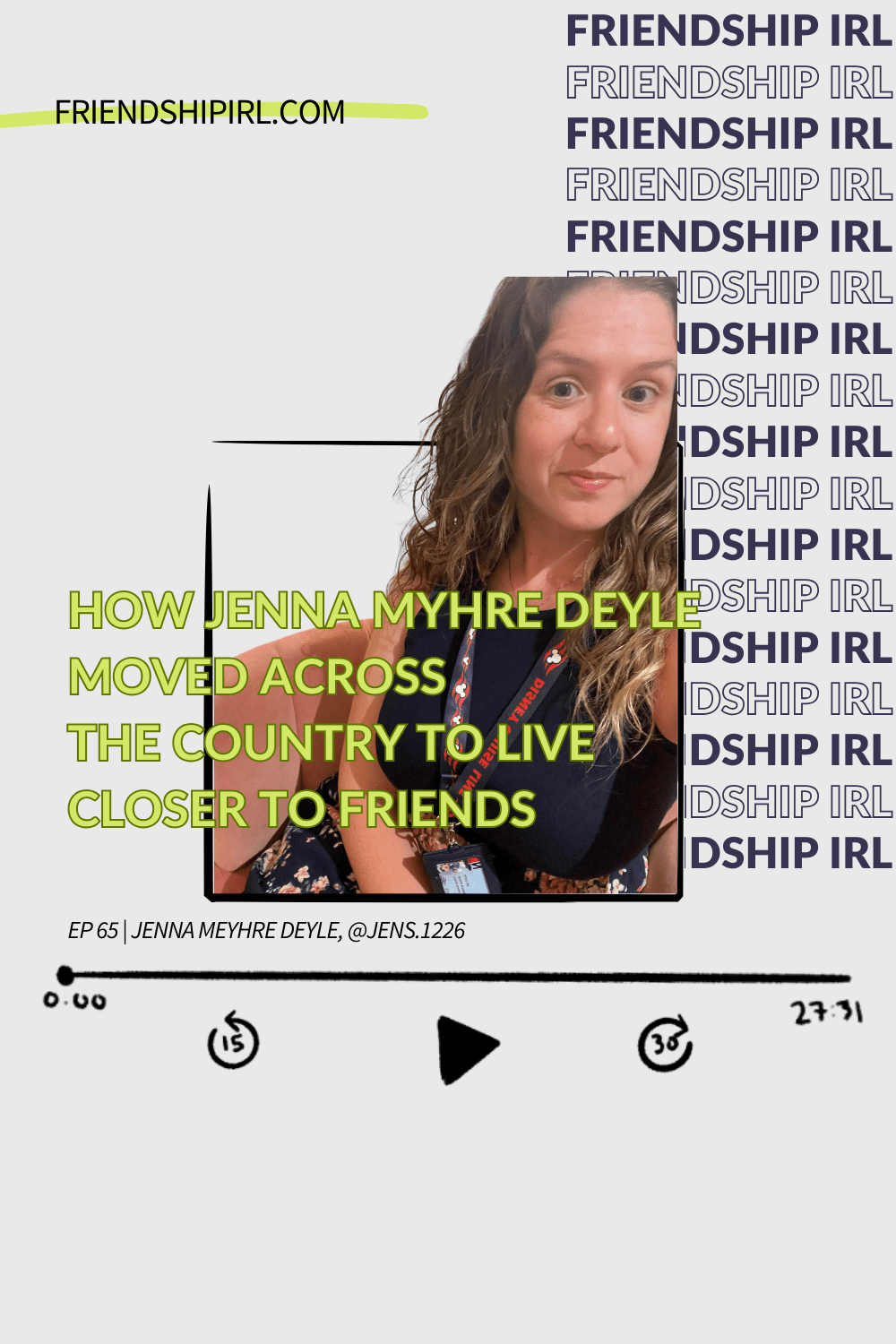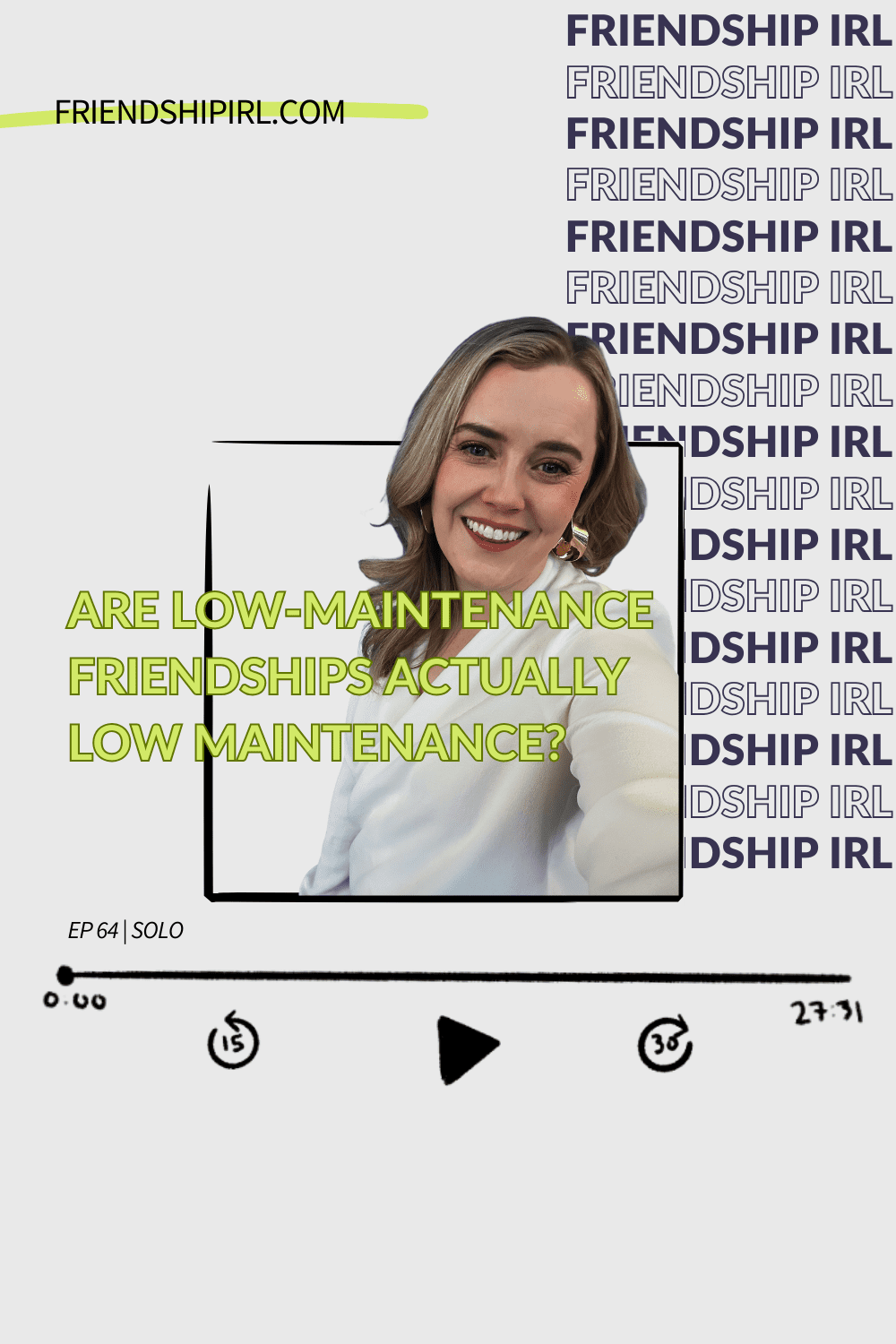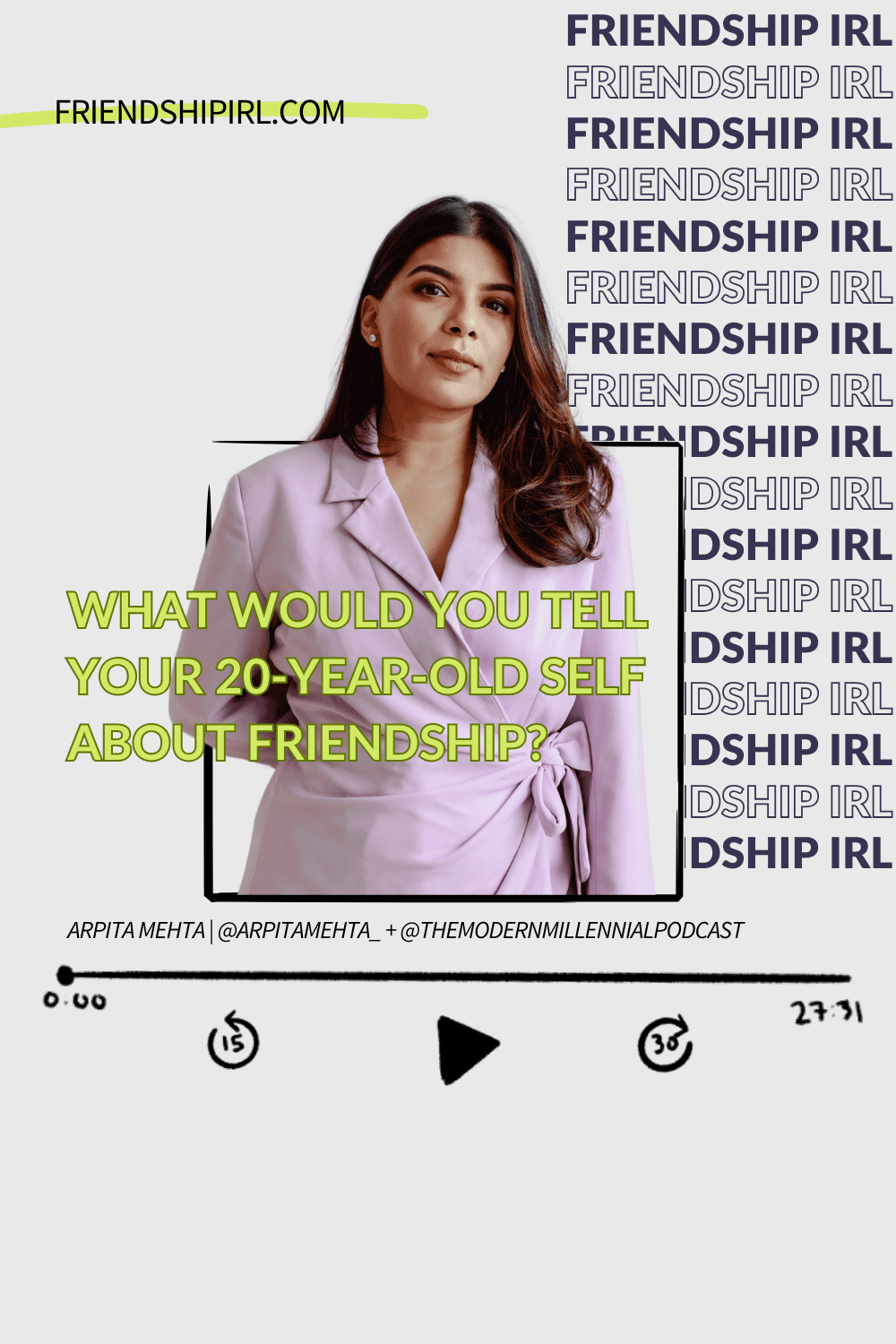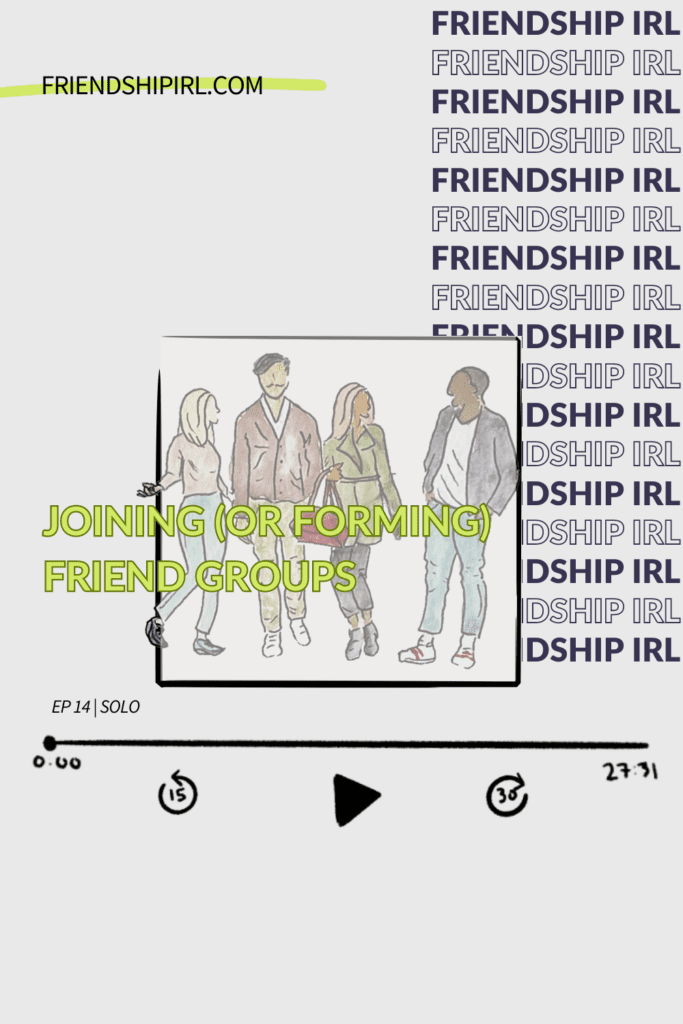
Podcast Description
Friend groups get a lot of attention whenever I post about them on social media, and I’m not surprised. The group itself is like a story root. You feel like you BELONG inside it.
But what do we really KNOW about friend groups? Where did we learn about how they should operate? Sometimes they’re modeled to us, and sometimes, we imagine them to be what we see in books or TV shows.
Of course, friend groups in the media are not realistic. They want sales. They want ratings! They want to create the dream or they want drama. In reality, every friend group operates differently – but I think there are some commonalities in friend groups, too, both in how they operate and how they’re formed.
So that’s what I’m tackling in today’s episode: friend groups. How to join one, create one, strengthen one, and how to use them to enhance your life. I’m sure there will be more episodes on this topic, but today, I just wanted to lay down some thoughts.
In this episode you’ll hear about:
- The strength of a friend group – and how it’s actually based on the strength of the individual relationships and connections within it
- How to join an established friend group and become a more permanent member by taking initiative, showing up, contributing, and investing in the relationships
- The pros and cons of joining a group – for example, you don’t have to start from scratch, but you might feel behind! – and the evolutions friend groups go through
- Effort, energy, trial and error required to create a friend group – and the importance to remember other people might not be as invested, which is OK
- Utilizing open-ended invites – for example, “I’m going to the bar at 4 p.m. tomorrow; stop by if you want to!” – and making it something you were going to do anyways
- Picking an interest and creating a group around it – for example, a movie group!
Reflection Question:
For me, 2023 is my year of fun and play, and I’m looking for friends and friend groups to help me do that. What kinds of friend groups are you looking for in 2023?
Notable Quotes from Alex:
“When we start anything, it always takes a little bit of effort and energy to get things up and running. It takes some trial and error. And everything starts from nothing. Creating a friend group is no different. You have to remember that every group, at some point, was just one person inviting people. One other person came, and it was two people. And then, over time, people started to show up. ”
“We don’t know what anyone else is thinking they want to add to their lives. And all we can do is put it out there in the world. But if we start doing that, it’s very likely that we’re going to start seeing the people that we’re looking for.”
Resources & Links
Like what you hear? Visit my website, leave me a voicemail, and follow me on Instagram!
Want to take this conversation a step further? Send this episode to a friend. Tell them you found it interesting and use what we just talked about as a conversation starter the next time you and your friend hang out!
Leave Alex a voicemail!
Joining (or Forming!) Friend Groups
@itsalexalexander Let’s talk about “How to Join a Friend Group.” #friendgroupproblems #friendgroups #friendshipadvice ♬ original sound – Alex | Community + Friendship
@itsalexalexander All 30+. Some college friends, but a lot of friends we’ve known for 1-3 years. #friendship #frirndshipgoals #friendshipcoach #grouptravelgoals ♬ original sound – sweet bee
Can I add you to the group chat?
Don't miss an update - Sign up for our weekly newsletter.
Until next time…
Take the conversation beyond the new podcast on friendship! Follow Alex on Instagram (@itsalexalexander) or Tiktok (@itsalexalexander), or send her a voice message directly with all your friendship thoughts, problems, and triumphs by heading to AlexAlex.chat and hitting record.
Episode Transcript
Podcast Intro 00:02
Alrighty, gang. Here’s to nights that turn into mornings and friends that turn in family. Cheers!
Podcast Intro 00:18
Hello, Hello, and welcome to the Friendship IRL podcast. I’m your host, Alex Alexander. My friends… They would tell you; I like to ask the hard questions. You know who I am in the group? I’m the person that’s saying, “Okay, I’m going to ask this question, but don’t feel like you have to answer it.” And now, I can be that friend for you, too.
Alex Alexander 00:50
Let’s talk about friend groups. Shall we talk about friend groups? I’m inspired, because quite often, I post something on social media. And I can really see what everyone is interested in, where the questions are, where you agree, disagree, confused. And I’ve been posting quite a bit about friend groups. I’m not surprised that this is a topic that draws a lot of attention. If you think about it, what do we really know about friend groups? We maybe have some friend groups, and they feel good, bad, indifferent. Maybe they’ve dwindled, maybe their thing of the past. Maybe you remember when a friend group felt like it was at its peak. A lot of feelings here. But as I’ve talked about before, when I’ve talked about friend ship overall, friends, where did we learn how a friend group should operate? I think this is similar to how we learned what a friend is. Which, if we… you know, flashback is having seen a friend group in action. So having this model to us, in some way, shape, or form, or what we see in the media, books, movies, TV shows, things like that.
PODCAST EPISODE! What is a friend? and the 4 Types of Friends we All Have. It’s one of our most popular episodes for a reason. Listen now.
Alex Alexander 02:23
And if I’m being honest, the way that the media portrays friend groups is pretty terrible. Because the media, TVs, shows, movies, books, they want sales, they want ratings. So they’re not really focused on creating something realistic, they’re focused on creating something that either is the dream, is the ideal, is the peak that is somehow maintained all the time, forever and ever. Or they want drama, because that’s what’s going to get us to watch. We’ve already discussed how you can’t maintain the peak of anything forever. And nobody wants friend group drama. So, the media maybe is not our best example. And I don’t really know if there is an example, besides just being in a friend group, because every group operates differently. But some things, I do think we can level set when it comes to friend groups. I don’t care if it is a trio, or group of 50 people, every individual relationship is its own within the friend group. And as much as you might think, well, that isn’t great, I’m being left out of the group, let’s reframe that, because what I think is that each individual relationship, being strong enough, strong in whatever part of the friendship spectrum it’s going to be, is really what is holding the group together. The group itself is really just like a story roots. You feel like you belong here. These are your people. But all the connections within that, all the things that create the evidence are the individual relationships.
Alex Alexander 04:21
So quite often, I think we get so focused on the group, when really we should take a step back and look at the individual connections we have within a group. Like if you ever had a friend group and you just don’t feel that close to them anymore, if you took a step back and looked at it, you might realize that that’s actually because friends that you were incredibly close with, you’ve let those individual friendships dwindle. So when you are spending time together in the group, although you feel like you belong there, it’s a little awkward because things don’t feel the same, because those friendships don’t feel the same. And maybe if you invested in those individual friendships, being with the group would feel stronger.
Alex Alexander 05:10
So I think it’s really, really important to consider how you’re nurturing various relationships within that group, whether it’s any size group, we are all different people. We all bring different things to a group, we have different strengths. We are interested, and like have shared experience roots and connections with each individual person in the group. It’s not one blanket connection, you might show up to the group and talk to one person about movies, another person about sports, and another person about the fact that your grandma’s in hospice. And sure, you might share those things broadly with the group, but you maybe have certain people you kind of connect with about certain things. So I’m going to take this kind of new reframe on friend groups today. And I’m going to talk about if you want to join an established friend group, or if you want to create a group, both great options.
PODCAST EPISODE! Listen to the Three Types of Roots here.
Alex Alexander 06:16
So first, let’s talk about if you want to join a friend group. I hear us all the time. You know, people say something like, I” keep getting invited to these parties or to these get togethers. But I just… I’m always the extra invite. I never like part of the group.” And joining a friend group is hard. Because if we take a step back, again, it’s not just joining the group, it is building relationships with the people in the group. So that when you show up, you’re connected to them, you have things to talk about, they know things about you, you know things about them. And that doesn’t have to be the same for every person in the group. Like you might become really close with a couple people or one person, and be more of an acquaintance with the rest of the people in the group.
Alex Alexander 07:15
So when you’re thinking about joining a friend group, when you are getting that invite, and you feel like the extra invite, my suggestion is to make it a point to befriend one person in the group. Like focus what shared experience and interest routes you have, connect with them on that, figure out a way to connect with them outside the group on that, check in, do all the things you would do to make a new friend. And then follow the same process with another person in the group. And maybe a third. And when you show up to the group, when everybody’s together, be active, participate, connect with the people that maybe aren’t the ones you feel like you’re gonna become the closest to, but get to know them, become like familiar friends with them. You know, they’re part of the group, how are they doing? What are some basic facts? How do they know everyone in this group? If you two were part of a conversation, what would you talk about?
PODCAST EPISODE! The Secret To Hosting A Gathering! Listen here. (BTW – It’s that you are probably trying to do too much).
Alex Alexander 08:25
And you may not build some big rapport with them outside of the text thread, or the group meetups or whatever you do. But when you do show up, you’re buying in that we all belong here, we’re all part of this group. I care about you. I’m gonna, like invest some energy and time into getting to know everybody that’s here on some level. So I think what happens is that a lot of people, when they want to join a friend group, they maybe get invited once or twice to something. But they aren’t taking the initiative to actually get to know people in the group that well, they aren’t contributing to the group. So on the, you know, maybe that second, third, fourth invite when you get invited, do the same thing everybody else is doing. Say, “Hey, can I bring something?” “Can I show up early and set up?” “Can I help in any way?” Maybe offer a little vulnerability. Tell people, “Hey, I really enjoy coming to this. It’s been really great to get to know all of you.” Like mean it. Don’t just sa. Mean it, but let people know, decide to become an initiator in the group.
Alex Alexander 09:44
Be the one that says, “Hey, you know, are we going to do this again next month? I’d be happy to plan it.” And now you’re contributing on a whole different level. Because now you’re actually taking on like the mental load of thinking about these things. You know, pay attention to how the friend group operates. Do they have traditions? Do they get together every month? And most importantly, show up. When you’re trying to crack into a friend group, I think it’s really important to make it a priority that you got to put yourself out there a little bit. Maybe you wouldn’t normally go to a get together on a Sunday night, maybe that’s a little outside what your normal boundaries are. But if you get invited, try and show up. Because the reoccurring connection, like the time to start to get to know each other will add up and that will matter.
Alex Alexander 10:44
And it shows that you care. It shows that you want to be a part of this, you like this group of people. Now, this could be a friend group, that’s just like a free-standing friend group. Like maybe this is a friend group that’s leftover from a group of friends at a job or college. And say you don’t have that shared experience, just know that sometimes you’re going to show up to the group. And they’re going to talk about things you don’t know about, like you didn’t go to college with them, you don’t remember what that story was, you’re going to hear some things, some stories over and over and over again, that at a certain point, you’re going to feel like you were there. So, I think you also have to manage that difference and remember that when you’re cracking, and there’s already roots built up in this friend group between people, and it’s not a slide on you. But you showing up means you’re gonna start building roots.
PODCAST EPISODE! How to Make Friends as a Grown-Up. Give it a listen!
Alex Alexander 11:47
And over time, if you get to be friends with these people, and it’s part of a group, you’re gonna get a however long in, I mean, a year or two years, couple years, and it’s going to be hard to… for them to remember a time when you weren’t part of the group. From personal experience, I can say that. There’s a lot of moments where you’re like, “Wait, weren’t you there for that?” Because it just feels like you’ve built so many routes and have so many memories, that it’s hard to imagine they weren’t always a part of the group. So the pros and cons to joining a group. The pros, there’s probably already some established way of connecting some reoccurring gatherings, a text thread. You don’t have to kind of build all that from scratch.
Alex Alexander 12:36
But the cons are that you might feel behind, I guess, that other people are closer than you are. You’re really going to have to put in the effort and the energy to get to know people, you can’t just depend on the group, you’re gonna have to find ways to connect with the people in the group, shared interests, spending time together, reaching out and saying, “Hey, we’re supposed to get together next month for brunch with the group. But do you want to go on a run next week, and start to build those connections beyond the group?” That’s some energy. And then the final con is just knowing that you’re walking into something that’s already established, and not letting the overwhelm, I guess, of all the things you don’t know, all the times you weren’t there, all the history that is there.
Alex Alexander 13:31
You know, in an ideal world, these friend groups, we all hope I think they stay the same. But what I’ve found is that people come in, and other people fall into kind of more of a historic role, sometimes right people move away or have other priorities or times change. And maybe you stay in touch, but they aren’t always showing up to the group. So as much as we’d like to think that everything’s gonna stay the same, accepting that things are always changing. Alright, now that we’ve talked about joining a friend group, let’s talk about creating a group. And I think maybe we need to just spend a moment thinking about creating anything. When we start anything, it always takes a little bit of effort and energy to get things up and running. Takes some trial and error. And everything starts from nothing.
PODCAST EPISODE! Navigating Big Life Changes with Friends. Listen here!
Alex Alexander 14:35
And creating a friend group is no different. We have to remember that every group, at some point was just one person inviting people. One other person came, it was two people. And then over time, people started to show up. Like everything builds slowly and those first few people that you add, take a while. I mean, it’s no different than building a business. And you know, getting those first few customers is hard and takes a while. And then once you get momentum, you start to get more customers and it keeps building and then like, maybe things get exponential, I don’t know. But if we want friend groups to get exponential, that’s what I meant by that. Maybe depends on what kind of group you’re trying to create. It’s just everything starts somewhere. And the trial and error piece is, you’re gonna make invites, and sometimes nobody’s going to show up. Until this becomes an established routine, a group that people feel connected to, they’re probably not going to be that committed in the beginning.
Alex Alexander 15:46
if you can decide that you’re going to invest some energy into this, to build it, and give it some time, there are so many people who are too ashamed to admit it out loud, but would like to have some groups that they feel connected to. So if you decide that you’re a person that creates groups, even in the moments where nobody’s showing up, you’re seeing the bigger picture. Like it’s not about you, it’s just about the fact that building anything takes a little bit of time. So if we’re creating a new friend group, you can invite a bunch of random people together, maybe these are all people that are connected to you. And you can commit to being the person who is going to start the group.
Alex Alexander 16:44
Now you have set this intention, you want to find these people in your life. Therefore, you’re going to be the one that has some initial energy investment. I think this catches a lot of people off guard, because they invite a group together once, maybe twice. And then they want people to reciprocate. They’re mad that no one else is planning the group get together. But it takes a little bit of time for the group to kind of establish for people to develop that story route of like, oh, this is my movie group. I want to contribute to this. Like they didn’t come into it with the intention that you did. So you have to take on a little bit of the burden to start things up.
Alex Alexander 17:33
Now, is this enriching their lives? Yeah, probably. You’re doing a great service, but you’re also getting something out of it. So just commit to being the person that’s going to invest the energy upfront, and maybe decide how long? That’s fine. I’m not saying you have to do this forever. We can all quit things if they don’t work, but give it more than one or two attempts. So I’ve talked before about some of these ideas, they might seem familiar. But this inviting like random people together people in your lives, I think this is what happens when as adults, we’re trying to kind of mimic those college friend groups, high school friend groups, or was it just a bunch of people around you, that you were trying to get connected to each other now as adults.
Alex Alexander 18:27
So some ways to do this, you can send open ended texts, invites. So, let me explain what that means. You could pick a group of friends, whether you send this in a group text, or individually to them. And you could just say, “Hey, I’m going to this park from two to four tomorrow. Stop if you want to.” And you could do this every weekend. Or you could do it once and then a few weeks later, you can say, “Hey, I’m going to this bar at 4pm tonight. Show up if you want.” But you have to keep putting yourself out there. And my suggestion would be to do this for things you are going to do anyways. An additional suggestion if you’re nervous about this, is to get a commitment from one friend or maybe go with a significant other. So, you and one friend are going to go to the park. You know they’re going to be there and you just send this open invite. And if nobody shows up, that’s okay because you were just going with this friend anyways. Same thing with the bar.
Alex Alexander 19:37
So make it something you were gonna do anyways and just start inviting people, but inviting a group of people together. So that over time, they start to see each other regularly. And again, remember, they did not come up with this idea. So they may not reciprocate initially, and send invites to the same group. It might take some time for people to start to feel connected. Another example I like to use is for parents out there, dog parents too. People that you’re meeting, say like the neighborhood park, starting a text thread. So you know, you’re chatting with these people over time. I’m not saying you do this the first time you ever see them, but these are the people you kind of see all the time at the park, and say, “Hey, I was thinking about starting a text thread, where we just let each other know if we’re coming to the park.” So you could just say, you know, I’m gonna send a text that says, “Hey, we’re gonna go from two to four today, if anybody wants to show up.” Nobody needs to respond to this text message in the thread, nothing like that. But maybe some people would wait an hour and go at two o’clock instead of one o’clock. And over time, you’re creating that repetition.
Alex Alexander 20:53
And after a while, if you’re all doing that, maybe it makes it easy to say, “Hey, does anyone want to come back to my house to grow burgers tonight?” Or maybe you meet someone in that group who plays soccer, like you do. You both decide to finally after so long join that soccer league that you’ve been considering. And that’s how you’re building those individual relationships, friendships within the group. So again, the thing about this method, the thing about just kind of like picking a more random group, I guess, is that it’s gonna take a while for people to realize you’re even trying to form a group.
Alex Alexander 20:53
And some people might be slow to show up, and commit. And I also think it’s important to remember that, although you’re inviting people, they may not be into it. I can’t tell you the number of times, we’ve kind of like, met a really great friend that we think our other friends would like, and try to invite them to things. They’re just not really that into it. That’s fine, we’re still friends with them. And we may even still invite them to some group things. But they just don’t really show up when it’s a group thing. Or they show up and they don’t really want to make friends with other people in the group. You know, they’re kind of just like there, because they got invited, but they’re not actually tried to connect with anyone, they’re not that interested. And that is fine. That is fine.
PODCAST EPISODE! Take control of your social wellness. Listen here.
[
Alex Alexander 21:38
So the other way I’ve suggested is to pick an interest and create a group around it. So if you love movies, and you want to watch more movies this year, and you wish you had friends to talk about movies with, maybe you want to start a movie group, you decide you’re going to put the effort in to find some people who want to watch movies with you. And you might have some friends that come to mind. But you might also just be open to meeting new people, friends of friends, coworkers, people out in the world who want to watch movies with you. So you decide you want to do this. The best way to go about it is just to start casually mentioning it to people. So when you’re in a conversation with your neighbors, you just say, “Yeah, I’m gonna start a movie group this year.” And see if anybody’s ears perk up.
Alex Alexander 23:25
See if anybody asked more questions. See if anybody says they love movies. They may not be interested. Now, you could just directly say, “I want to start a movie group this year, are you interested?” That’s fine. But if you’re a little too nervous to do that, just start saying you’re looking for people to hang out on Sundays and watch movies, and tell whoever you feel comfortable. Tell your neighbors, tell your friends, mention it to some friends of friends at a party. And remember, every group starts as one person and then becomes a second person. And then you’re able to say, “Oh, we have a group that gets together for movies on Sundays. Are you interested?” And it’s… they just wanted to be part of normal, everyday conversation.
Alex Alexander 24:17
You have some sense of what you’re trying to build. And this would be similar to you telling people, “I’m looking to join a movie group this year.” And you can definitely go that route too. That’s another option. But, you know, then you… you’re like, “Oh, well, that movie group meets on Fridays. I don’t want to go on Fridays. That’s a lot of people. That’s more people than I want. I really just want to watch movies in my home.” So you know, if you want to create a group that fits around your parameters more closely, then you can create it. So a personal example of this is that in 2023, this is my year of fun and play. I’m not really a pick a word person but the last few years have been very work focused. I want to go do some things that make me laugh and feel silly.
Alex Alexander 25:10
So I wrote down some things I want to try this year. And yes, I know that this is quite the list. I want to try a pottery class. I want to learn to scuba dive, I already found a friend for that. And I want to go to an improv class. So the improv class, I started telling a few friends that I thought might be interested, the close friends. I just said, “I want to try improv this year. Do you have any interest in going to class with me?” Now, no one’s interested. So that was a dud. And I think a lot of people would stop there, right? They would decide, okay, well, I just have to go by myself. And I totally can go by myself. I can, I would meet people there. That’s fine. I can opt for that too. But I haven’t stopped.
Alex Alexander 25:58
So instead, I’ve just been telling people that I want to try improv this year, in casual conversations. And I didn’t really get that many bites, and I don’t know why I didn’t think about this, until I mentioned it in my Toastmasters Club. For anybody that doesn’t know what Toastmasters is, it’s a public speaking group. You go every week, it’s a formal community. It’s like a worldwide organization. I have a chapter here in Seattle that I’m a member of, and I go every week. Now these people are, I mean, we practice public speaking, it would make sense that they would be potentially intrigued by something else that involves performing and public speaking and being on stage. But I hadn’t really thought about it. These are not my closest friends. I have been in the group for nearly three years. So I do have, you know, familiar friends in there. But they’re not my present friends. Like we are very limited in how we are connected at this point.
Alex Alexander 26:59
And I didn’t even think about it. I just mentioned, “I want to try improv this year”, and I had a room full of people. I mean, probably at least five people be like, “Wait, I would do that with you. I want to go. Which group do you want to go to?” So it was more than just, “Oh, I’m interested.” It was like, “Where do we go?” And if we weren’t actually taking a class, like if I was like, “Oh, I just want to meet up and try some improv”, I could have gotten these people to do that. I would have had to pick a time to do it, I would have had to like set up a text thread or an email thread, something like that, but it would happen. So, this is just a reminder that we don’t know what anyone else is thinking they want to add to their lives. And all we can do is put it out there in the world. But if we start doing that, it’s very likely that we’re going to start seeing the people that we’re looking for.
Alex Alexander 27:51
There’s a psych term, like the illusion bias or something. Basically, it’s you know, when you decide you’re gonna buy a car, you’re gonna buy a jeep. And then you suddenly started seeing Jeeps everywhere. And that’s kind of how I feel about making friends, when you get specific about the interest that you want. When you get specific and you start talking about it, suddenly you realize that a lot of people exist who are interested in similar things. Like you’ll be in conversations, and somebody will mention acting, in my case, in this case, and then I can say, “Oh, have you ever done improv?” And they can say yes. Now, they may not join the group with me, but we share this interest.
Alex Alexander 28:31
So in summary, on this friend group episode, one, start paying attention to the friend groups you’re in, and what relationships are happening within the friend group. And when you do that, one other note about that, honestly, encourage relationships. If you’re in a trio of friends, remember that it’s not just the trio. It’s an individual relationship you have with each of those friends and they have with each other. So, you want to encourage their connection to each other. Because that’s what’s going to help the group as a whole, is letting everybody be their own friendship within that. So rethink, pay attention to the friend groups you’re in. Well, look at the individual relationships. How are you nurturing those? How are you nurturing the group? What skills are you bringing to the group? What are you investing? How are you initiating? How are you contributing? As far as joining goes, when you’re joining a friend group, try and befriend the people in it. Develop your own relationships with the people in the friend group.
Alex Alexander 29:44
when you go to create, remember that nothing’s just magically created. Everything takes a little trial and error. Everything starts from nothing and then one person and two and then maybe five, and that not everyone is initially bought, that you have to invest a little bit of that energy to get the momentum going, to get the group connected. And you can connect random people who have no idea. Or you can try and rally a group around a similar interest or experience. But either way, you got to rally a little bit. You got to invest the energy to get things going. Now, I am sure there will be plenty of episodes that I do on friend group problems, friend group struggles. But today, I just kind of wanted to lay down some thoughts I have about friend groups in general. And I hope that you take these and go out into the world into your friendships, and try and see if they hold true. Let me know. Maybe I’m completely missing something. The only way we will all know is if we’re all reflecting and crowdsourcing information and talking about it.
Alex Alexander 31:00
Thank you for listening to this episode of Friendship IRL. I am so honored to have these conversations with you. But don’t let the chat die here. Send me a voice message. I created a special website just to chat with you. You can find it at alexalex.chat. You can also find me on Instagram. My handle, @itsalexalexander. Or go ahead and leave a review wherever you prefer to listen to podcasts. Now if you want to take this conversation a step further, send this episode to a friend. Tell them you found it interesting. And use what we just talked about as a conversation starter the next time you and your friend hang out. No need for a teary Goodbye. I’ll be back with a new episode next week.

